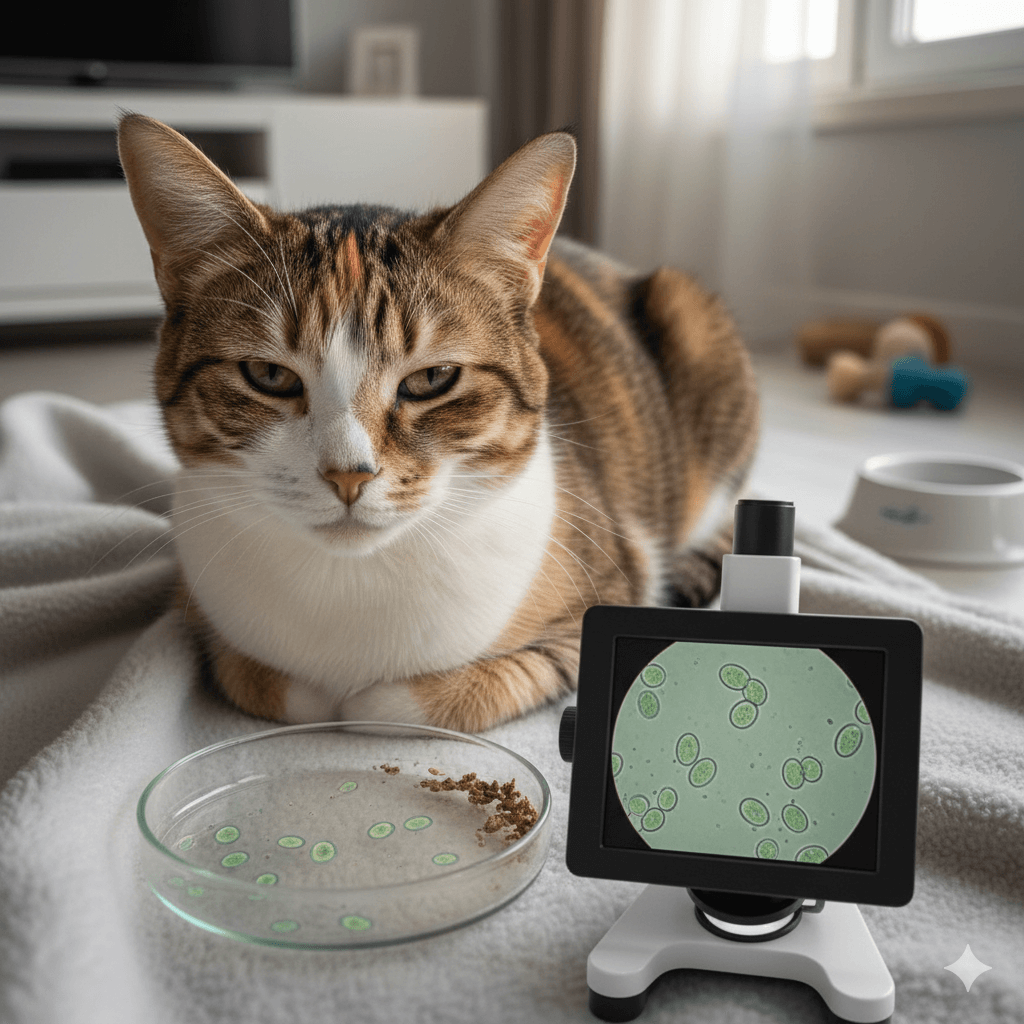Why Does My Dog Scratch the Carpet?
If you’ve ever caught your dog enthusiastically pawing at the carpet, you’re not alone. This quirky behavior is common among dogs of all breeds and sizes, but it often leaves owners scratching their heads in confusion. Is your dog trying to dig a hole indoors? Marking their territory? Or is there something more instinctual at play? Understanding why dogs scratch the carpet can provide valuable insights into their needs and instincts. In this blog post, we’ll explore the reasons behind this behavior, offer practical tips to manage it, and ensure your furry friend stays happy and healthy—all while protecting your floors from unnecessary wear and tear.
Common Reasons Why Dogs Scratch the Carpet
Dogs scratch the carpet for a variety of reasons, ranging from instinctual behaviors to emotional triggers. Identifying the root cause can help you address the issue effectively.
Instinctual Digging Behavior:
In the wild, dogs often dig to create a comfortable resting spot or bury food. Scratching the carpet may be a domesticated version of this natural behavior.Marking Their Territory:
Dogs have scent glands in their paws, and scratching the carpet can release pheromones to mark their space as their own.Boredom or Lack of Stimulation:
If your dog isn’t getting enough physical or mental exercise, they may resort to carpet scratching as a way to entertain themselves.Anxiety or Stress Relief:
Some dogs scratch the carpet when they’re feeling anxious or stressed, using the repetitive motion as a self-soothing mechanism.Attention-Seeking Behavior:
Dogs are masters at getting their humans’ attention, and scratching the carpet might be their way of saying, “Hey, I need something!”
By understanding these motivations, you can take steps to redirect your dog’s energy toward healthier outlets while addressing any underlying issues.

How to Redirect Your Dog’s Carpet-Scratching Habit
Once you’ve identified why your dog is scratching the carpet, the next step is to redirect this behavior in a positive and constructive way. Here are some strategies to try.
Provide a Designated Digging Area:
Set up a sandbox or soft blanket where your dog can dig safely. Reward them with treats and praise when they use it instead of the carpet.Increase Physical Exercise:
A tired dog is less likely to engage in destructive behaviors. Incorporate daily walks, runs, or playtime to burn off excess energy.Offer Mental Stimulation:
Puzzle toys, treat-dispensing games, and obedience training can keep your dog mentally engaged and reduce boredom-related scratching.Use Positive Reinforcement:
Whenever your dog avoids scratching the carpet, reward them immediately with verbal praise, petting, or a small treat to reinforce good behavior.Address Anxiety with Calming Techniques:
For anxious dogs, calming aids like pheromone diffusers, soothing music, or gentle massage can help reduce stress-related scratching.
With consistent effort and patience, you can guide your dog toward healthier habits while preserving your carpets.
Check this guide 👉Understanding Dog Scratching Until Bleeding: Best 7 Tips!
Check this guide 👉When Your Dog Scratches Their Eye: Best 7 Health Tips!
Check this guide 👉Why Is My Dog Scratching Its Ear and Licking Its Paw? Best 7 Tips
Reasons for Carpet Scratching | Solutions to Manage the Behavior |
|---|---|
Instinctual digging behavior | Provide a designated digging area |
Marking territory with scent glands | Use scent-based deterrent sprays |
Boredom or lack of stimulation | Increase physical and mental exercise |
Anxiety or stress relief | Introduce calming techniques |
Attention-seeking actions | Ignore unwanted behavior; reward calmness |
Signs That Carpet Scratching Could Indicate a Health Issue
While carpet scratching is usually harmless, it can sometimes signal an underlying health problem. Keep an eye out for these signs that warrant a visit to the vet.
Excessive Paw Licking or Chewing:
If your dog is obsessively licking or chewing their paws alongside carpet scratching, it could indicate allergies or skin irritation.Limping or Favoring a Paw:
Pain or discomfort in a paw might lead to unusual scratching behavior as your dog tries to relieve the issue.Changes in Eating Habits:
Sudden changes in appetite combined with carpet scratching could point to gastrointestinal distress or nausea.Unusual Vocalizations During Scratching:
Whining or growling while scratching may suggest pain or discomfort that needs professional evaluation.Frequent Scratching Without Obvious Triggers:
If the behavior seems compulsive or unrelated to typical triggers, it might indicate obsessive-compulsive tendencies or neurological concerns.
Monitoring these symptoms ensures your dog receives timely care if their scratching stems from a medical condition rather than behavioral causes.
Training Tips to Discourage Carpet Scratching
Training plays a crucial role in discouraging unwanted behaviors like carpet scratching. These tips will help you teach your dog what’s acceptable—and what’s not—in a kind and effective manner.
Use Consistent Commands:
Teach your dog commands like “leave it” or “stop” to interrupt the scratching behavior consistently.Reward Alternative Behaviors:
Encourage your dog to perform alternative activities, such as fetching a toy or lying down, by rewarding them generously when they comply.Supervise and Redirect Early On:
Watch for early signs of carpet scratching and immediately redirect your dog to a more appropriate activity.Avoid Punishment:
Scolding or punishing your dog for scratching can increase anxiety and worsen the behavior. Focus on positive reinforcement instead.Practice Patience and Repetition:
Training takes time, so remain patient and consistent. Repetition will eventually lead to lasting behavioral changes.
With dedication and consistency, you can successfully train your dog to stop scratching the carpet and adopt more desirable habits.
Environmental Factors That Trigger Carpet Scratching
Certain environmental factors can exacerbate your dog’s urge to scratch the carpet. Addressing these triggers can help minimize the behavior.
Temperature Changes:
Dogs may scratch the carpet to cool down on hot days or create warmth during colder months. Ensure your home is climate-controlled for comfort.Noisy or Chaotic Surroundings:
Loud noises or chaotic environments can overstimulate your dog, prompting them to seek solace through scratching. Create quiet, safe spaces for relaxation.New Additions to the Household:
The arrival of a new pet, baby, or even furniture can unsettle your dog, leading to increased scratching as a coping mechanism. Gradually introduce changes to ease their transition.Lack of Personal Space:
Dogs who feel crowded or overwhelmed may scratch the carpet to assert boundaries. Provide designated areas where they can retreat when needed.Seasonal Shedding Cycles:
During shedding seasons, dogs may scratch more frequently due to itching or discomfort. Regular grooming can alleviate this issue.
By addressing these environmental factors, you can reduce your dog’s reliance on carpet scratching as a coping mechanism.
Fun Alternatives to Carpet Scratching
Redirecting your dog’s energy toward fun and engaging alternatives can curb their desire to scratch the carpet. These activities cater to their instincts while keeping your floors intact.
Interactive Toys:
Puzzle feeders and interactive toys challenge your dog’s mind and keep them entertained for hours.Digging Pits or Boxes:
Fill a shallow container with sand or shredded paper to create a safe digging zone your dog will love.Chewable Treats:
Long-lasting chews satisfy your dog’s urge to gnaw and distract them from carpet scratching.Agility Training:
Setting up a mini agility course in your backyard provides both physical exercise and mental stimulation.Hide-and-Seek Games:
Teaching your dog to search for hidden treats or toys taps into their natural hunting instincts in a constructive way.
These alternatives not only redirect behavior but also enhance your dog’s overall well-being.
When to Seek Professional Help
If your dog’s carpet-scratching behavior persists despite your best efforts, it may be time to consult a professional. Here’s when to seek additional support.
Behavioral Specialists:
A certified animal behaviorist can assess your dog’s habits and provide tailored strategies to address the issue.Veterinary Evaluation:
Persistent scratching accompanied by other symptoms warrants a vet visit to rule out health problems.Professional Trainers:
Enlisting the help of a skilled trainer can expedite the process of breaking bad habits and teaching new ones.Medication for Severe Anxiety:
In cases of extreme anxiety, veterinarians may prescribe medication to complement behavioral interventions.Support Groups for Owners:
Online forums or local groups connect you with other dog owners facing similar challenges, offering advice and encouragement.
Seeking professional assistance ensures your dog receives the care and guidance they need to thrive.
Frequently Asked Questions About Dogs Scratching Carpets
Is carpet scratching normal for dogs?
Yes, it’s relatively common, especially among breeds with strong digging instincts. However, excessive scratching
Should I punish my dog for scratching the carpet?
No, punishment can increase anxiety and worsen the behavior. Instead, focus on positive reinforcement and redirection.
Can diet affect my dog’s urge to scratch?
Absolutely! Food allergies or nutritional deficiencies can exacerbate skin irritations, leading to increased scratching.
How do I stop my dog from ruining my carpet?
Provide alternative outlets, engage in regular exercise, and use deterrents to protect sensitive areas.
What if nothing works to stop the scratching?
Consult a veterinarian or certified animal behaviorist for personalized guidance.
Understanding and Managing Your Dog’s Carpet-Scratching Behavior
Carpet scratching is a normal yet puzzling behavior that many dog owners encounter. By exploring its causes—whether rooted in instinct, boredom, anxiety, or health issues—you can address the behavior in a way that respects your dog’s needs while safeguarding your home. With patience, consistency, and a bit of creativity, you can channel your dog’s energy into positive outlets and strengthen your bond along the way. Remember, every dog is unique, so finding the right solution may take time—but the rewards of a peaceful living space and a content pup are well worth the effort.
Understanding Cryptosporidium in Cats: Best 7 Expert Tips! – Spot symptoms, treat safely, and stop parasite spread in your home.
Understanding Cryptosporidium in Dogs: Best 7 Expert Tips! – Learn symptoms, treatment & prevention for this stubborn gut parasite.
Understanding Syringomyelia in Cats: Best 7 Expert Tips! – Recognize signs, manage pain, and support your cat’s neurological health with vet-backed guidance.
Understanding Syringomyelia in Dogs: Best 7 Expert Tips! – Expert insights on symptoms, MRI diagnosis, pain management & quality of life.
Understanding Cryptosporidium in Cats: Best 7 Expert Tips! – Spot symptoms, treat safely, and stop parasite spread in your home.
Understanding Cryptosporidium in Dogs: Best 7 Expert Tips! – Learn symptoms, treatment & prevention for this stubborn gut parasite.
Understanding Syringomyelia in Cats: Best 7 Expert Tips! – Recognize signs, manage pain, and support your cat’s neurological health with vet-backed guidance.
Understanding Syringomyelia in Dogs: Best 7 Expert Tips! – Expert insights on symptoms, MRI diagnosis, pain management & quality of life.





